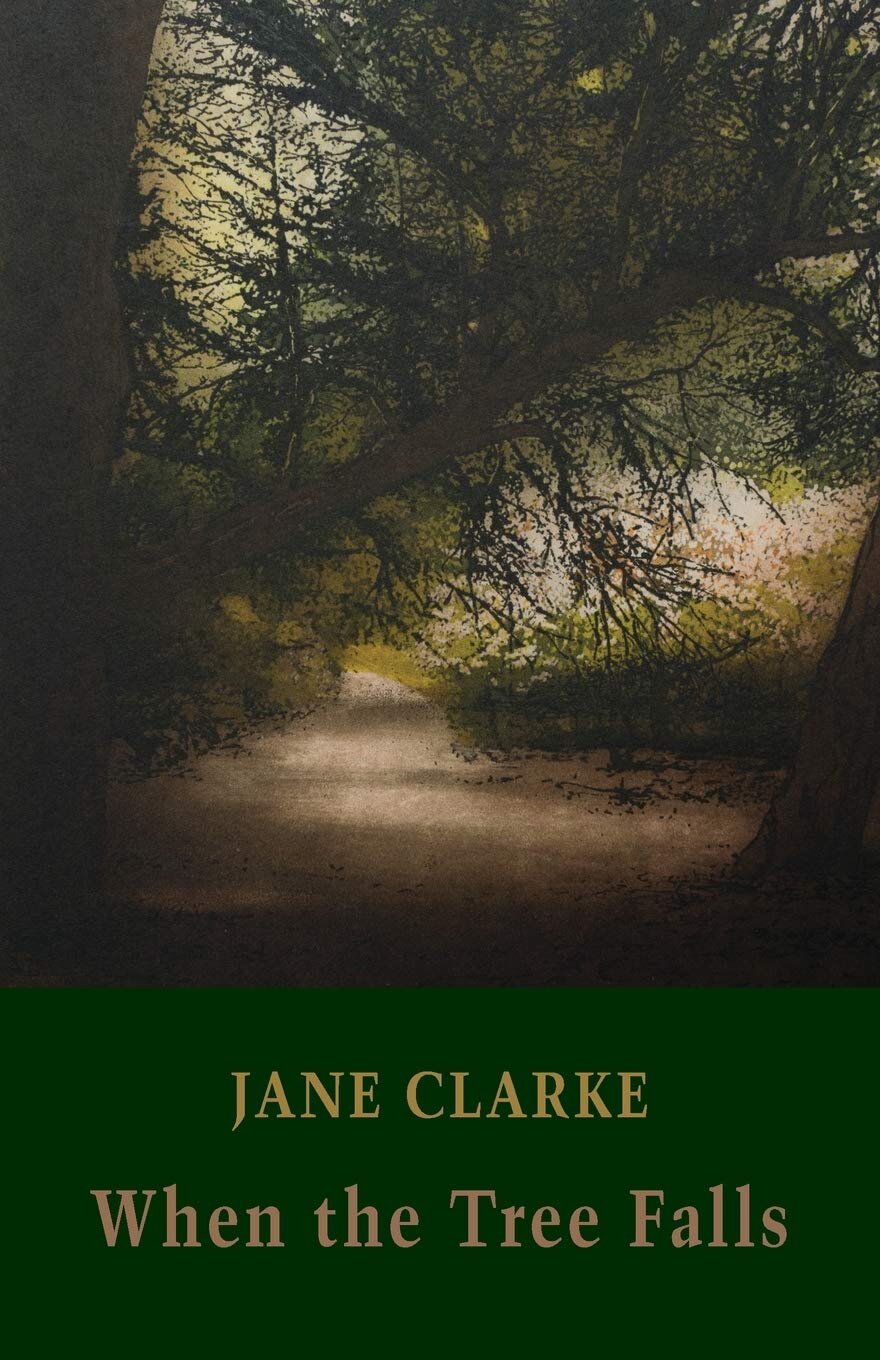Portrait Through Landscape: Review of 'When the Tree Falls ' by Jane Clarke
In forty-nine carefully wrought fluent poems, the longest of 30 lines, When the Tree Falls communicates space left by the poet’s father within the family, the home, and the land he farmed. In so doing, Jane Clarke shows how an integrated life, though unremarkable to many, is woven into so many aspects of other people’s lives in the family and outside, into life cycles, the fields, and animals.
The first of the spare, carefully formed sequence of poems is an elegy to the father constructed with repetition touching on the natural world and the life that the father had. The poems follow the journey of the man moving away from the home in which he lived,
‘in the house where he was born//
and swore he would never leave.
...He stood at the top
of the stairs in a fever that came on him
as fast as nightfall in winter,’
[‘He stood at the top of the stairs’]
A sequence of poems is deftly constructed around images of a stick, a rod, a scythe. Even poems linked to hospital use metaphors of the land and farming, for instance, in ‘That I could’, there is, ‘the digging for a vein in his arm,’. Throughout, metaphors of nature are knitted into references to the man described as, ‘horse chestnut petals falling pink in the yard, / the well hidden in a blackthorn thicket.’ (‘That I could’)
The collection contains a sequence linked to the poet’s mother (nine poems from ‘Metastasis’ to ‘Mammogram’). Here we see Jane Clarke’s subtle use of land as metaphor,
‘The way couch grass takes hold of a garden,
spreads seeds, runners, white rhizomes
long before we notice, the way it grows//
more tenacious when we begin to dig.’
[‘Metastasis’]
The poet narrator’s difficult relationship with her mother is expressed in poems such as ‘Camping at Bearna’, a poem in which the mother’s unbending nature, reinforced also in ‘Point of Departure’, is revealed,
‘My father is taking me to the train
because my mother can’t; her heart
is broken over what I told her.’
Despite the apparent difficulties, Jane Clarke reveals a tenderness for her mother, painting her portrait in ‘Hers’ which begins with an expression of intimacy, ‘My mother said she knew, just knew I was going to be a girl,’ and throughout the poem the secret domain of how a woman cares for a home, ‘She taught me her tricks of the trade.’ However, we’re left with the sense that the poet narrator has or will have no use for these tricks.
Jane Clarke’s wonderful metaphors texture the collection, ‘Ballymoe Church is tumbling now, stone by stone,’ (‘Promise’). Here, as in many poems, she conflates the external world, often the land, with the experience of her parents. This happens again in ‘Cypress’ in which a tree
‘...survived
every winter’s wind,
its trunk ridged
as a raised bed ready for seed,
... exposed roots,
worn bare as bones,’
I can’t recommend highly enough this sensitive, thought-provoking, and ultimately life-affirming collection.
